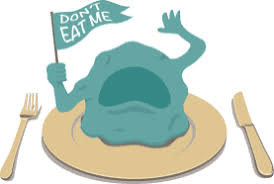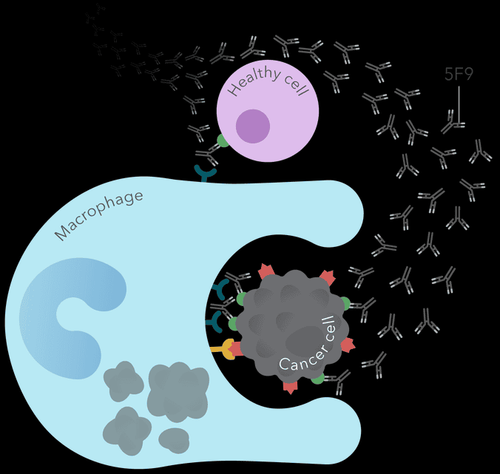This is an automatically translated article.
The article is written by doctors of Internal Oncology Department, Vinmec Times City International General Hospital.
Researchers at Stanford University School of Medicine have discovered the signal cancer relies on to evade detection and destruction by the immune system. The scientists said that after blocking this signal in mice transplanted with cancer, the immune cells would begin to attack the cancer cells.
Cancer cells' "don't eat me" signal to evade the immune system
Normally, immune cells or macrophages will detect and eat cancer cells. In recent years, researchers have discovered that proteins on the surface of normal cells can "communicate" with macrophages in order not to be eaten and destroyed. This keeps normal cells from being attacked by the immune system, but cancer cells themselves also use this "don't eat me" signal to evade the immune system.


Trắc nghiệm: Thử hiểu biết của bạn về bệnh ung thư
Ung thư là nguyên nhân gây tử vong hàng thứ 2 trên thế giới. Thử sức cùng bài trắc nghiệm sau đây sẽ giúp bạn có thêm kiến thức về yếu tố nguy cơ cũng như cách phòng ngừa bệnh ung thư.
Bài dịch từ: webmd.com
Cancer therapy is based on the 'don't eat me' signal Recently, Stanford University researchers also announced the discovery of a protein called CD24 that acts as a "don't eat me" signal. and used by cancer cells to protect themselves.
If macrophages are present, the cancer cells must generate signals that keep the cells from attacking them. Therefore, it is necessary to destroy these signals, thereby unleashing the full potential of the immune system to fight cancer.
Research shows that many cancer cells overproduce CD24, and macrophages that enter the tumor will receive CD24 signaling through a receptor called SIGLEC-10, and macrophages will not attack attack cancer cells. If the interaction between CD24 and SIGLEC-10 is blocked, the macrophages will begin to eat the cancer cells.
The scientists also transplanted human breast cancer cells into mice. When CD24 signaling was blocked, the mouse's immune system macrophages attacked the cancer cells.
Especially, 2 diseases that are very difficult to treat, blood cancer and triple negative breast cancer, have had great changes when blocking CD24 signals. This can be a way out for dangerous cancers.
CD24 and CD47 signaling In some cancers, such as leukemia, CD47 signaling is very easily blocked, but not CD24 signaling, whereas in ovarian cancer it is the opposite. This suggests that most cancers would be attacked by macrophages if they blocked one of these "don't eat me" signals.
Researchers hope that therapies that block CD24 signaling will follow in the footsteps of CD47-blocking therapies, in preclinical trials, and then safety and efficacy trials in humans.
Source: Nature Reviews Cancer (2019)
MORE:
Can metastatic cancer use autologous immunotherapy? How does the immune system affect cancer cells? Immunotherapy for breast cancer: Is it the optimal choice?













